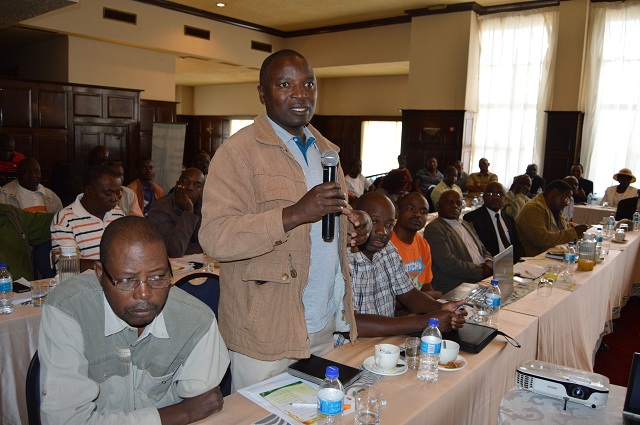
The Sunday News

Mhlupheki Dube
I PARTICIPATED at the one-day Agribusiness seminar on livestock markets organised by Sunday News at a Bulawayo hotel on Thursday.
I thought it could be useful to share a few lessons derived from the gathering of livestock farmers and aspiring farmers. It was a well-attended indaba and this is encouraging when you begin to see farmers from across Matabeleland region taking time and incurring costs to travel just to get knowledge and information on matters pertaining to their industry.
The norm especially with smallholder farmers is that they are not prepared to spend anything even when the issue directly concerns them.
I get a lot of “call me backs” and when I do call, the most familiar response has been of farmers calling seeking solutions for problems at their farming ventures.
Whoever told our smallholder farmers that knowledge is for free and that someone must call you at their expense to solve their problems instilled a bad mentality among farmers.
The Agribusiness indaba provided the farmers with a very rare opportunity to interact with two important ministers in the field of agriculture.
Lands and Rural Resettlement Minister Dr Douglas Mombeshora and Agriculture, Mechanisation and Irrigation Development Deputy Minister Responsible for Livestock Paddy Zhanda.
One of the key lessons coming from the indaba was that farmers from all sectors of agriculture need to adopt more efficient ways and means of production.
In livestock production for example we need to move from low calving rates of 48 percent to around 80 percent which is the acceptable world standard for an efficient livestock production unit.
Many good husbandry practices have to be adopted by farmers for this to happen which range from hands-on management to the use of appropriate genetics.
If farmers produce efficient and adequate amounts of commodities such as maize and soya beans, the cost of stockfeed will drop drastically. This will help farmers in other sectors such as poultry and pig production.
Currently Zimbabwe produces the most expensive maize in the world at close to $400 per tonne while other countries are around $180/tonne. The indaba also reiterated that farmers should stop expecting the Government to do everything including what they are supposed to do. Farmers should produce their own hay and fodder to save their animals from drought instead of expecting the Government to do it.
Another important lesson that came up at the indaba was that the Government was now looking at implementing different and cost effective methods of controlling Foot and Mouth Disease (FMD) which is a serious threat to livestock farmers. These measures include decentralised cattle sales so as to avoid animals being ferried across provinces and districts to Bulawayo for a sale.
My vote is on decentralised sales having witnessed over $42 000 being injected into a few wards surrounding a sale point in Lupane after a sale. Besides reducing the perennial challenge of middlemen, decentralised sales have a net effect of improving cash circulation in communities which are still largely relying on barter trading because of lack of cash. Besides decentralised cattle sales, the Government also looks at use of feedlots and quarantine zones as a control measure against FMD. Animals will be fattened and sold straight from these feedlots and quarantine zones with no movement except to the abattoirs for slaughter.
Most importantly with regards to controlling and funding FMD costs the Government is working on a statutory instrument that will compel abattoir operators to pay a certain levy towards a livestock health fund which will be used to procure vaccines for FMD and other related diseases. This will come as a tight screw on abattoir operators who have been resisting paying levies to local authorities for animals which are sold to them. This has been compelling farmers to pay levies on behalf of abattoir operators as they argued that they only pay levy when they physically go out to collect the animals themselves. Needless to say this is a void argument meant to circumvent the system because in both scenarios the abattoir remains the buyer and the buyer is the one obligated to by the levy.
Now they will pay! A similar levy is already in operation in the dairy sector. This pen prays that the livestock health fund does not end up benefiting a few thieves but will be used to the letter and spirit of the fund.
Lastly, it was also revealed during that seminar that the current carcass grading system is under review so that a grading system which does not disadvantage farmers with small framed animals such as our local Tuli and Nguni types, is produced. One, however, prays that the review will not amount to deliberately lowering the bar so as to accommodate some mediocrity by some farmers.



